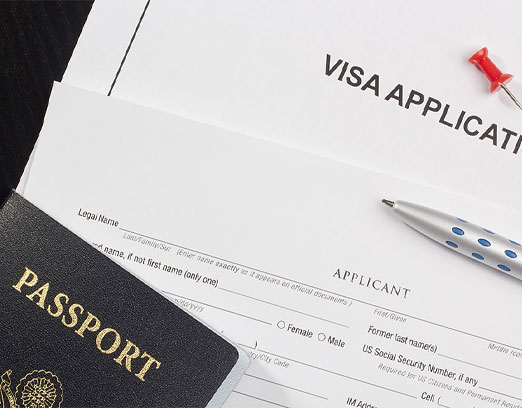
October 10, 2019
Trump’s Third Travel Ban Blocked Yet Again
President Trump’s latest travel ban which was set to take effect on October 18th, was blocked yesterday by a federal judge in Hawaii. The latest ban imposed travel restrictions on citizens of Chad, North Korea, Venezuela, Iran, Libya, Somalia, Syria and Yemen. The federal judge’s order stops it, at least temporarily, with respect to all the countries except North Korea and Venezuela.
In granting the state of Hawaii’s request for a temporary restraining order against the ban, the judge stated that the “latest ban suffered from precisely the same maladies as its predecessor” and “plainly discriminated based on nationality.” The temporary restraining order will keep the ban from being enforced for six of the above eight countries.
Trump’s first ban, issued in January 2017, sought to bar entry of nationals of seven Muslim majority countries – Syria, Iraq, Iran, Libya, Yemen, Somalia and Sudan – for 90 days; and Syrian refugees were banned indefinitely. The ban also applied to foreign nationals who held lawful permanent resident status (green card holders) and travelers with existing valid US visas. The implementation of the ban, without prior notice, led to chaos at various US airports and huge support from people calling for its withdrawal. Soon after, an appeals court blocked the enforcement of the ban.
Subsequently, Trump issued a revised travel ban that dropped Iraq form the previous list and exempted green card holders and travelers who had valid visas. Judge Watson of the US District Court of Hawaii, blocked this second travel ban too, holding it unconstitutional as it singled out a particular religion, which was upheld by appellate courts. However, later, the Supreme Court allowed Trump’s travel ban to take partial effect by permitting the government to impose the 90-day ban on travelers from six Muslim-majority countries along with a 120-day hold on the refugee program in cases where there was no bona fide connection or strong ties between the traveler and the U.S. But, the apex court allowed people with “bona fide relationship with a person or entity in the United States” to enter the country.
The latest decision of Judge Watson, blocking the enforcement of the most recent – third version of- the travel ban is likely to be appealed, but for now, travelers from Chad, Iran, Libya, Somalia, Syria and Yemen cannot be denied entry into the US on the basis of the ban. The Trump administration argues that the entry restrictions in its latest ban applies to countries based on their inability or unwillingness to share critical information necessary to safely vet applications, as well as a threat assessment related to terrorism, instability, and other grave national security concerns. The Supreme Court will be under more pressure now than before to resolve the dispute once and for all. Some legal analysts predict that the latest travel ban may pass muster, as the measure was put into effect after an extensive process in which the US negotiated with other countries for information.
Zeenat Phophalia, Esq., Senior Associate
